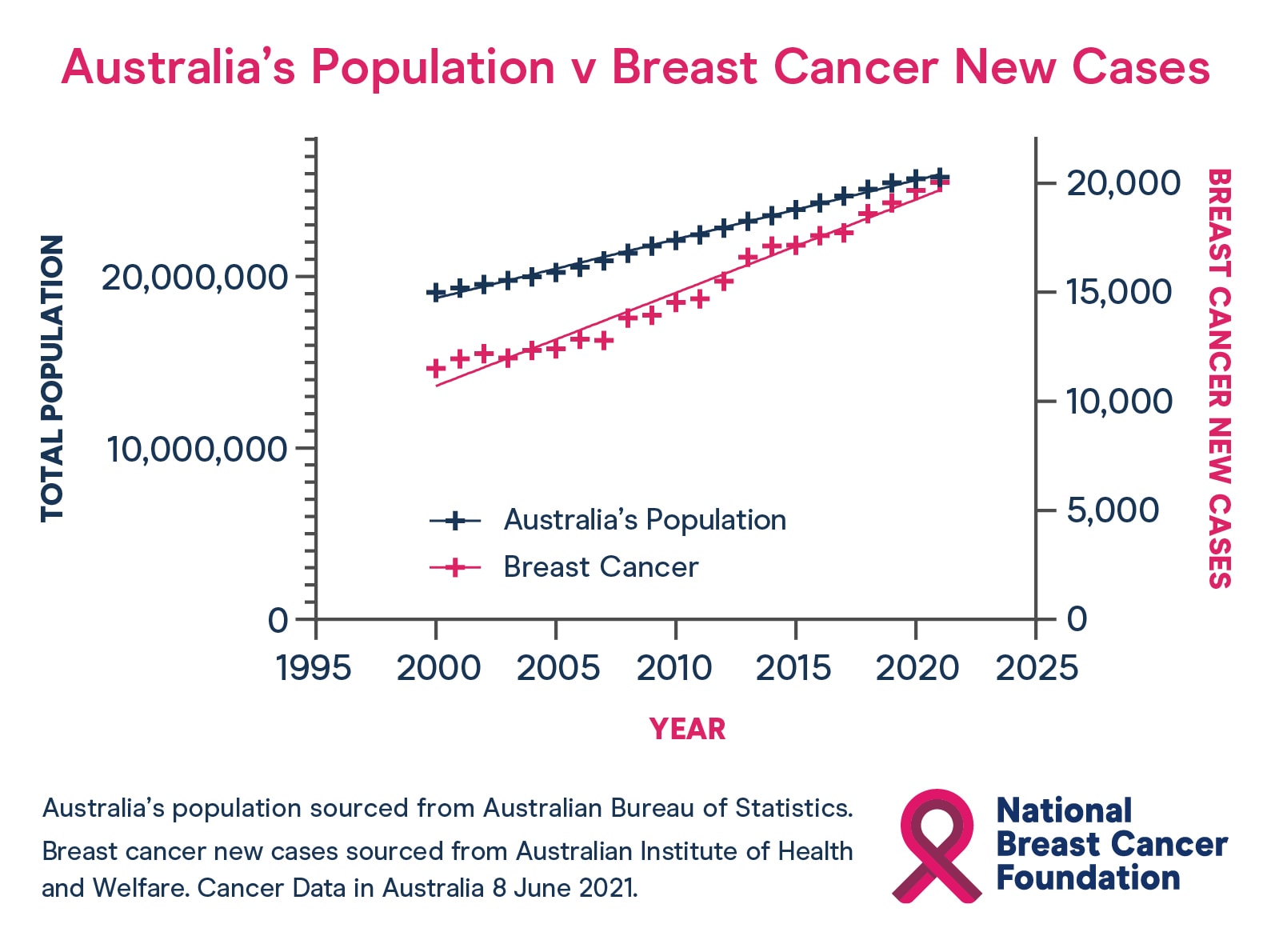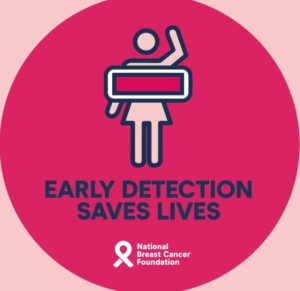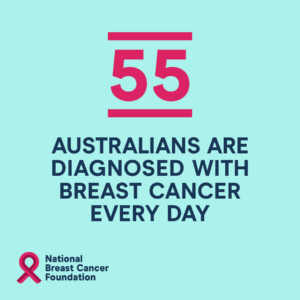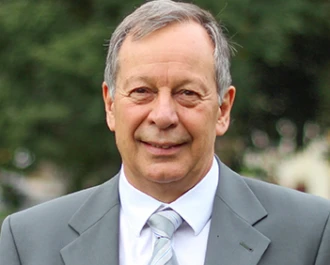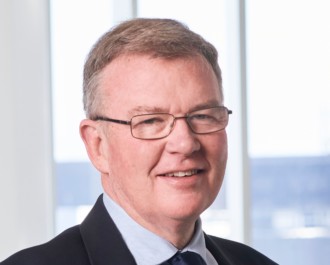
The National Breast Cancer Foundation (NBCF) has today announced their $3 million contribution to a new $5m co-investment with the University of Sydney in its first 10-Year Chair in Breast Cancer Prevention, as new data shows breast cancer incidence has consistently increased over time and is continuing to outpace Australia’s’ population growth.
The significant investment for prevention research has been awarded to Professor Nehmat Houssami (Faculty of Medicine & Health, The University of Sydney), to implement a long-term research program designed to address several areas in screening and prevention to reduce the growing incidence of breast cancer and, ultimately, reduce deaths.

Professor Nehmat Houssami
Professor Houssami’s cutting-edge research will take a broad approach to breast cancer prevention, including improving breast screening technologies to detect breast cancers earlier as well as improving surveillance, staging and prognostication in patients already diagnosed with breast cancer.
Professor Houssami’s initial focus will be planning to implement a large-scale breast screening trial using tomosynthesis (or 3D mammography) in comparison with standard screening. The proposed research collaboration with BreastScreen Australia will utilise an emerging technology in early detection, building on Professor Houssami’s work already completed in a pilot trial, indicating tomosynthesis increases detection of breast cancer. As early detection offers the best possible chances of survival to those breast cancer affects, this is a promising area for development.
An additional key area of Professor Houssami’s research will be monitoring women previously diagnosed with breast cancer for earlier detection of second or recurrent breast cancer through new and improved screening technology.
The sustainability of the 10-year funding model also means Professor Houssami will be able to apply learnings from the initial stages of research to inform the approach to consequent projects, particularly in the challenging area of primary prevention.
This form of prevention is currently focused on women identified as high risk due to genetic mutations, but Professor Houssami plans to explore this at a broader population level, which while challenging, could bring significant benefit by reducing the risk of developing breast cancer.
Professor Houssami said: “I’m proud to be awarded NBCF’s first Chair in Breast Cancer Prevention and support the organisation’s powerful vision of Zero Deaths from breast cancer.
“The 10-year funding model NBCF have selected provides me and my research team with the stability to undertake this priority-targeted research and builds on my findings as my research progresses over time.
“This multi-project program is important, as no individual strategy can make a significant dent in the burden of breast cancer, but rather addressing several areas in breast cancer screening and prevention will increase our chances of improving breast cancer outcomes.
“I am dedicated to advancing a comprehensive breast cancer research program that focuses on prevention and aims to reduce the impact of the condition on Australians.”
NBCF is expanding its considerable contribution in research funding during National Science Week 2021, Australia’s annual celebration of science and technology. The assignment of the Chair is the first step in NBCF’s new Prevention Program, aimed at supporting the organisation achieve its vision of Zero Deaths from breast cancer.
Professor Sarah Hosking, NBCF CEO, said: “Over the last 27 years, NBCF has made significant improvements to Australia’s breast cancer outcomes through ground-breaking research. However, a recent survey of NBCF funded researchers showed that 93 per cent felt a lack of funding opportunities in Australia was extremely challenging. Over three-quarters of them stressed that securing funding was extremely or very challenging – so we know that offering the security of sustained funding is essential.
“We thank each of our donors from the community for their generous contributions which makes continued investment in prevention-oriented research like the 10-Year Chair possible. This is what leads to a real, tangible change for the impact of breast cancer.”
“We are confident that Professor Houssami, as an established leader in breast cancer prevention, will support NBCF’s goal to continue to reduce deaths from breast cancer through this program, and I’m excited to see the long-term results that Professor Houssami’s endeavours will bring in saving lives.”
Breast cancer is the most commonly diagnosed cancer in Australia, with approximately 55 Australians diagnosed each day. Its incidence has increased by 36 per cent in the last 10 years and in 2021, it is predicated that 9 Australians will die each day from the disease.
NBCF has been committed to funding life-saving breast cancer research since 1994, and data shows that without continued investment in research, over 30,000 lives will be lost to breast cancer by 2030.
For NBCF to play their part in achieving Zero Deaths from breast cancer, they require an investment of at least $100 million over the next nine years.
DONATE HERE
Reference List:
- Australian Institute of Health and Welfare 2021 (last updated: 16th June 2021), Cancer Data in Australia. Cat. no. CAN 122. Canberra: AIHW. Accessed June 2021. Available online.
- Australian Bureau of Statistics 2021, National, state and territory population: Statistics about the population and components of change (births, deaths, migration) for Australia and its states and territories. Accessed July 2021. Available online.
- Houssami N, Lockie D, Clemson M, Pridmore V, Taylor D, Marr G, Evans J, Macaskill P. Pilot trial of digital breast tomosynthesis (3D mammography) for population‐based screening in BreastScreen Victoria. Med J Aust 2019 Oct; 211(8):357-362. doi: 10.5694/mja2.50320.
More News Articles
View all News
